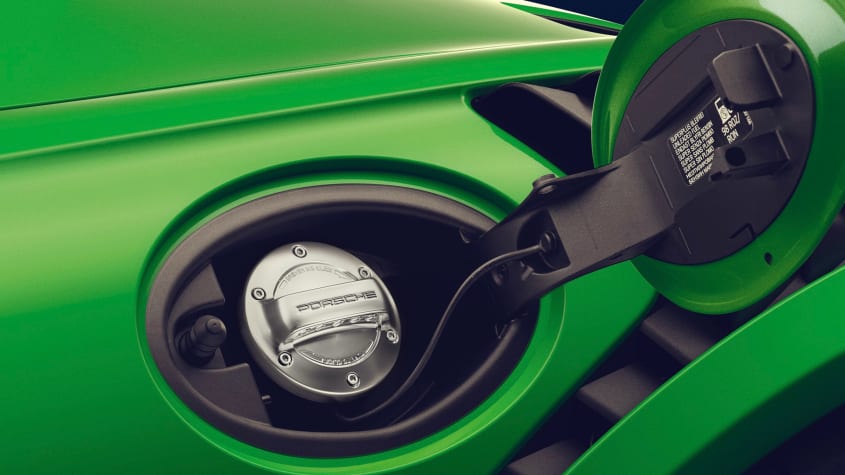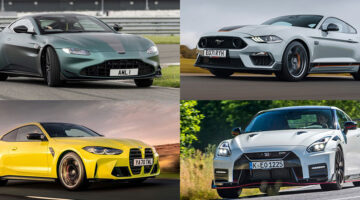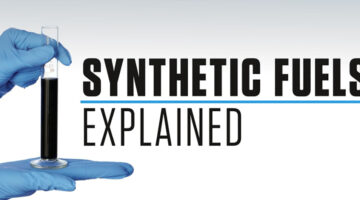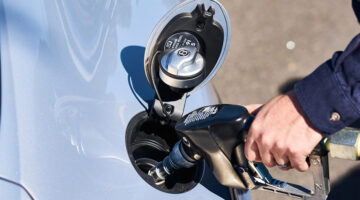Porsche claims a car running on eFuel will have the same CO2 footprint as an EV

Porsche’s Vice President Motorsport and GT cars, Dr Frank Walliser, believes internal combustion engines using synthetic fuel, or eFuel, will be as clean as an electric vehicle. Speaking at the launch of the new 911 GT3, Dr Walliser explained that Porsche’s development of synthetic fuels is on course to start trails in 2022 and that this fuel could be used in all of Porsche’s current internal combustion engines without any requirements to modify them, including the all-new 992-generation GT3.
“Synthetic fuels are very important to allow us to reduce our CO2 output. Emissions are way better than current pump fuel, with less particulates and less NOx produced; synthetic fuels have between eight to ten components whereas petrol today has 30-40 and not all of them are welcome,” Walliser explained.
“Synthetic fuel is cleaner and there is no bi-product and when we start full production we expect a CO2 reduction of 85 percent. From a ‘well to wheel’ perspective – and you have to consider the well to wheel impact of all vehicles – this will be the same level of CO2 produced in the manufacture and use of an electric vehicle.”
> New 992 Porsche 911 GT3 revealed – a McLaren 600LT killer
While the development of synthetic fuels remains in its infancy and the production process requires large scale investment for what is considered a small volume (Porsche expects to have 130,000 litres ready by 2022), manufacturers and suppliers haven’t given up on the internal combustion engine just yet and are continuing to invest in eFuels.
As well as allowing today’s internal combustion engined cars to significantly reduce their emissions and to offer a sustainable alternative for motorsport (currently Porsche only plans to use its synthetic fuel for its motorsport programmes and at its driving experience centres), synthetic fuels would allow older cars to remain on the road without the need for any modifications to their engines while still benefiting from the same reduction in tailpipe emissions.
With Governments around the world already announcing plans to ban the sale of petrol and diesel engined cars by the end of the decade, you could argue the development of synthetic fuels is a fruitless task. But the industry is wise to every Government’s willingness to make the boldest of u-turns on a whim, and also bright enough to understand that electric vehicles will never be the answer to every mobility need.
This article originally appeared at evo.co.uk
Copyright © evo UK, Dennis Publishing



